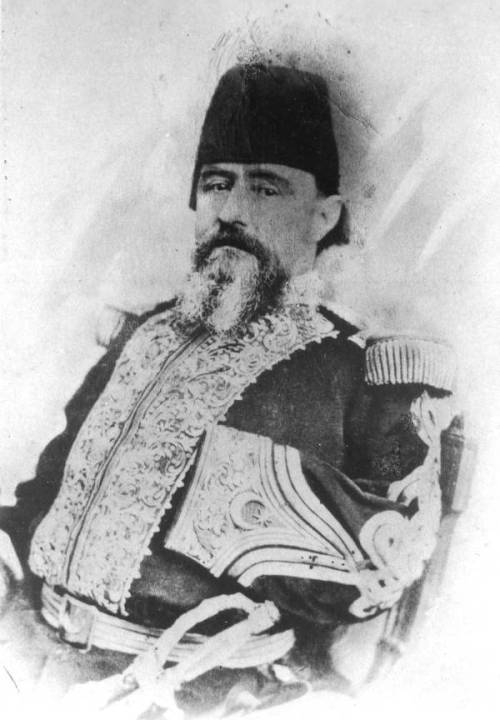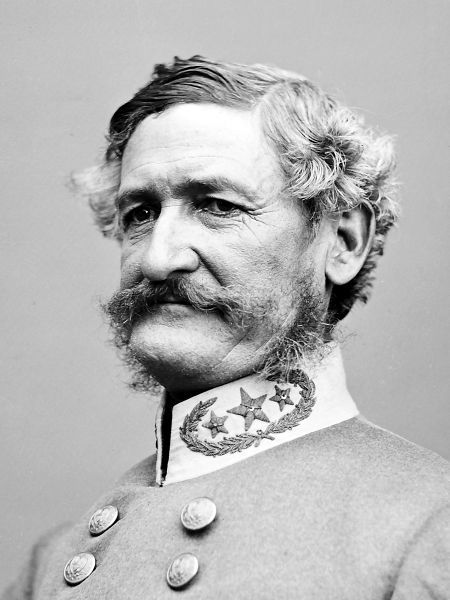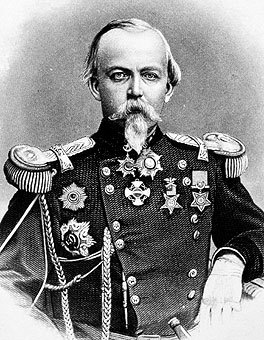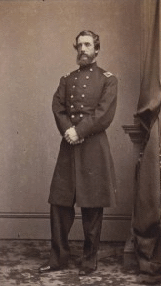Civil War Mercenaries in Egypt, 1870’sIn 1869 a representative of the Khedive of Egypt met wit
Civil War Mercenaries in Egypt, 1870’sIn 1869 a representative of the Khedive of Egypt met with Gen. William T. Sherman for advice in hiring three experienced American officers to serve in the Egyptian Army. The Khedive of Egypt was Isma'il Pasha, son of the Ottoman Emperor and a man who was on a quest to modernize the Egyptian military. Sherman recommended to Pasha three names, all of whom were experienced Civil War officers; Maj. Gen. William Loring (Confederate, pictured top left), Brig. Gen. Charles Pommeroy Stone (Union, bottom left), and Brigadier Gen. Henry Hopkins Sibley (Confederate, top right). The three men in turn recruited another 50 officers and NCO’s, all of whom served either the Union or Confederacy during the Civil War. Once in Egypt they were met by another American, a former Union Colonel named Thaddeus P. Mott (pictured bottom right). An adventurer, globetrotter, and soldier of fortune who was a veteran of wars in Italy and Mexico, Mott had been recruited by Pasha earlier in the year.The purpose of hiring these men was very clear. In the 19th century the mighty Ottoman Empire had declined significantly. Isma'il Pasha believed that in order to survive the empire and Khedive of Egypt had to modernize its military, which was decades behind the West in terms of doctrine, tactics, and technology. Pasha believed that outside help was needed. He chose Americans because after the American Civil War, there were many unemployed veterans who were experienced in modern warfare. Furthermore, the United States had little interest in the empire, and thus were a neutral party. It was Pasha’s intention as Khedive (viceroy) to use these men to modernize the military forces under his command in Egypt.Once in Egypt the American mercenaries set to work supervising the reformation of the Egyptian military. This included the construction of new coastal fortifications, training of the army, and the founding of an officers school headed by American officers. During the years the American advisers made great strides in reforming the Egyptian military, however progress was often shaky at best. Many Egyptian officers and soldiers were offended by the American’s arrogant and/or racist attitudes towards them. Many of the Americans refused to learn Arabic, creating a linguistic barrier between themselves and the men they commanded. Finally Union and Confederate rivalries also flared up resulting in fist fights, brawls, and even duels among the mercenaries.By 1874 Isma'il Pasha began to have dreams of conquest and glory with his new army. In 1875 he annexed Darfur, then he turned his attention towards the conquest of Ethiopia. The Americans expected Pasha to give command of the expedition to William Loring, who held the rank of fareek pasha (Major General). However command was given to Ratib Pasha, an ex-slave who served the former Khedive of Egypt. The was an incredibly foolish move as Ratib had little military qualifications. The Ethiopians, however, were fully prepared for war and had raised a massive army. After purchasing modern weapons and receiving military training from British military advisers, the Ethiopians were ready to do battle. At the Battle of Gurwa the poor leadership of Ratib Pasha caused the outnumbered Egyptian Army to be slaughtered. Many Egyptians pointed the blame at the Americans despite the inept leadership of Ratib. Eventually the disillusioned Americans returned home. Those who remained were eventually dismissed due to budget cuts. Only Thaddeus P. Mott remained. He moved to Turkey and served in the Ottoman Army, fighting against the Serbians and distinguishing himself at the Battle of Shipka Pass during the Russo Turkish War. -- source link
Tumblr Blog : peashooter85.tumblr.com
#history#egypt#civil war#union#confederacy#mercenaries#war#ottoman empire#egyptian military#egyptian army#isma'il pasha#19th century#military#military advisors




